Swahili, or Kiswahili, as it’s known among native speakers, is used by close to 100 million people. Communicating in the Swahili language gives you quite the advantage when doing business within East Africa, where you’ll make lasting and quality connections with professionals in Tanzania, Kenya, Uganda, and their neighbors close by.
Sure, it’s a language with fewer native speakers than languages like Chinese or Spanish, but it also has fewer bilingual people competing with you in whatever industry you work in. So don’t discount the language, thinking that it will give you fewer opportunities; after you learn Swahili, your expanded horizons of opportunity will amaze you!
Swahili is a useful tool of conversation in the present day, but its past is laden with rich culture for the lovers of history out there. In this article we’ll tell about the language, its history, and how to learn it.

Swahili is spoken in countries of East Africa such as Kenya, Tanzania, and Uganda.
Table of Contents
Coastal Beginnings
Swahili is a Bantu language, composed of words from various ethnic groups dotting the East African coast. This region, christened the “Swahili Coast,” starts from the bottom of Somalia, runs through Kenya and Tanzania, and finishes at the upper tip of Mozambique, and you can’t forget the islands in the Indian Ocean nearby. The Bantu peoples inhabiting the area include the Mijikenda (a Swahili term for “nine cities”), Taita, Pokomo, and many other tribes.
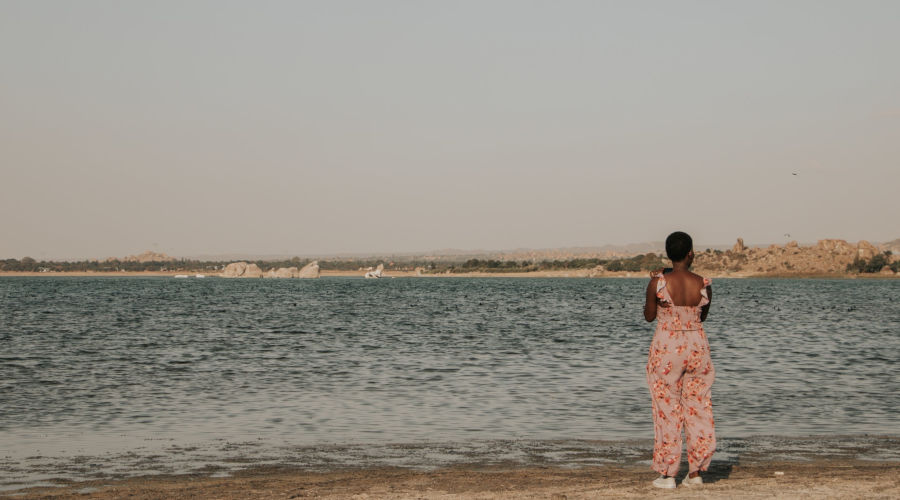
The region known as the “Swahili Coast” starts from the bottom of Somalia, runs through Kenya and Tanzania, and finishes at the upper tip of Mozambique.
Trade with South Asia, the Middle East, and southern Europe began in the first century A.D., but the most telling sign of foreign influence would come with the establishment of the Sultanate of Zanzibar in 1698. Now, we won’t bore you with a monotonous explanation of events of a seemingly distant past, but the Sultanate did mark a highly important political development in the region, tying southern Arabia, specifically Oman, and East Africa together.
Although the Sultanate was overthrown in a bloody revolution on the island of Zanzibar in 1964, the use of Swahili is deeply entrenched and has spread to the mainland and inner parts of East and Central Africa.
Islam has remained the major religion of the Swahili coast, rooted within the trade routes snaking through the area.
Zanzibari architecture boasts heavy wooden doors, inner courtyards, and carvings of verses from the Qur’an.
The history of the East African shoreline, spurred on by globalism and capitalism, has rendered the natives accepting and appreciative of cultures originating outside their immediate surroundings. As a tourist, you will also notice the cultural remnants of European colonialism, making your whole experience eye-opening with a dash of déjà vu.

Animal welfare officers in East Africa protect the region’s unique natural resources. Environmental protection is important, not only for the locals, but also for the future of the lucrative tourism industry.
Commonalities Between Swahili & Arabic
Arabic only contributes approximately 15-20% of Swahili. However, due to its popularity among language learners, Arabic’s influence on Swahili is both fascinating and important to look at. Thus, if you opt to learn one language, the other would not be too difficult to adapt to.
Swahili mainly follows the grammatical structures of Bantu dialects.
Its vocabulary represents a more diverse array, stemming from Portuguese, Hindustani, German, and English, in addition to Arabic, sources.
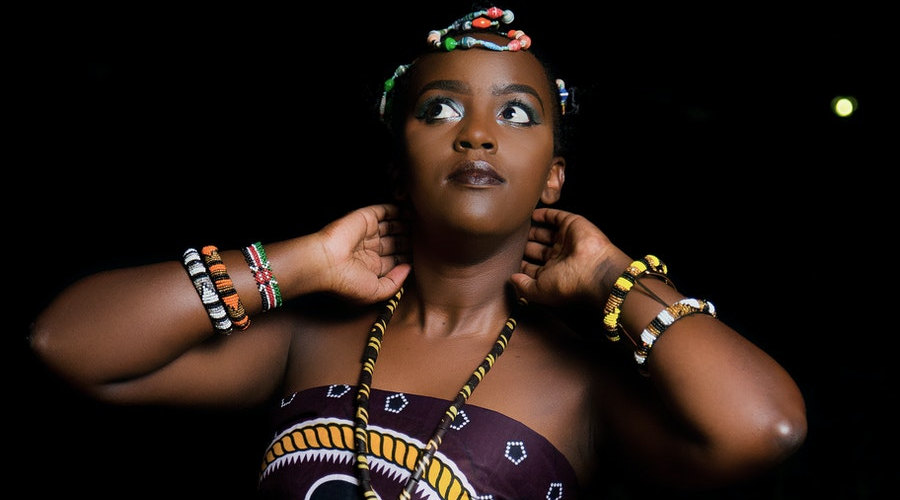
A Kenyan woman.
Here is a brief list of some words found in both Swahili and Arabic dictionaries, differing slightly in form but similar in etymology.
- One Arabic word is موافق (muafiq), which is “okay,” or “acceptable.” Its Swahili counterpart is mwafaka, which also carries the same connotation.
- شهید (shahid) denotes the word for “witness,” the same meaning imparted to the Swahili word shahidi.
- A last example is قدرة (qudra), which means “ability,” a word that influenced the Swahili word kudura, again a reflection of its Arabic source in definition and, to a lesser extent, phonetics.
Okay, you must be intrigued and think that learning two languages at the same time is finally possible. On the contrary, Swahili and Arabic serve as maps where the speaker can trace the vocabulary and draw similarities between the two dictionaries, but one cannot be confused with the other. However, can they be reminiscent at times? Yes, of course.
Another intriguing facet of Swahili is how the vocabulary accommodates these two origins of African and Arabian. If there is one particular word, then it may exist in its more Arabic form and more Bantu form. In other words, Swahili can sound more African or more Arabic depending on the speaker’s preference. Interesting, right?
For example, the word “wait” is usually said in two ways: ngoja, which has Bantu roots, and subiri, which comes from the Arabic word صبر (sabr), meaning “patience.”
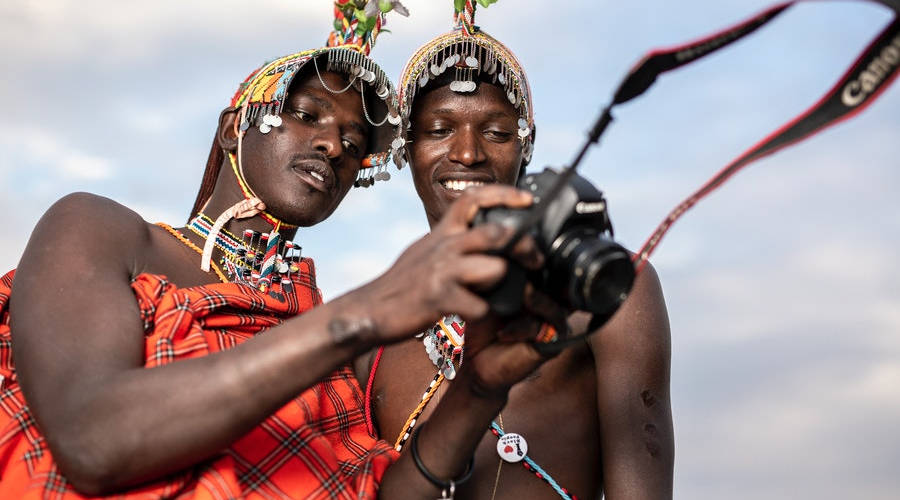
Two Maasai men look at a photo. (Maasai isn’t a Bantu ethnic group. They’re actually Nilotic. And they speak Maa, not Swahili. But they’re one of the most recognizable tribes from Kenya and Tanzania, two countries where Swahili is commonly spoken.)
In other instances, a word from a Bantu language and one from Arabic combined together to create their unique Swahili counterpart. Take the word kila, which is Swahili for “every.” In Digo, a tribal language of Kenya, “every” means chila. In Arabic, the same word goes by كل (kul). Thus, if you notice how the two words elide, chila + kul conglomerate to produce the word kila. This is the process by which Swahili was born.
Read More About World Languages
8 Types of Spanish—How to Choose for Your Translations
The Persian Language: The Ancient Tongue of Iran
Greek: A Modern Language With Beloved Ancient Roots
Is Chinese Really the Hardest Language in the World to Learn?
Due to Arabic’s location in the Middle East, other languages bear resemblance to it and, by extension, to Swahili itself. Look at Hebrew, for instance. The Hebrew word for “curses” is קללה (laanah), just as it is in Arabic with لعنة (la’ana), and, in the same vein, laana in Swahili.
In Turkish, another language with a close proximity to Arabic, the word for “zero” is sıfır. In Arabic, it is صفر (sifr), while in Swahili, “zero” is sifuri.
It’s fascinating how a thread strings together what one would otherwise think are unrelated cultures.

Swahili brings together a variety of influences from Arabic as well as from other regional languages.
Swahili or English?
There was a humorous moment inside the Kenyan Parliament where members bickered amongst themselves over the limited knowledge of Swahili that most within the hall displayed. Captured on live news cameras, a debate raged on over why English should not be mixed with Swahili and over what the proper terminology was when addressing the Speaker, eliciting laughs and exasperation from those present.
Kenya, a nation that boasts the biggest economy in East and Central Africa, displays a greater knowledge of English than Swahili, despite both being the nation’s official languages.
Tanzania is the true gatekeeper of this Bantu dialect, requiring visitors to understand more than half of a standard Swahili dictionary. Yes, Kenya is wonderful as a travel destination, but, for a language enthusiast, it’s more beneficial to traverse Tanzania to sharpen your skill set.
In any case, there are just some Swahili phrases out there that anyone planning to travel to East Africa must be cognizant of.
Here are a few to remember:
- Asante means “thank you”
- Karibu means “welcome”
- Ni ngapi? means “how much is it?
- Samahani means “excuse me” or “sorry”
- Tukutane baadaye means “Let’s meet up later”
Overall, the Swahili language is blissfully straightforward. The most imposing roadblock in understanding comes with novel vocabulary. The allure of Swahili stems from its melodic and poetic sounds, especially considering how often metaphors and proverbial sayings are mixed into daily conversation.
Is It Worth Learning Swahili?
Besides the fact that Swahili speakers encompass six countries and that it’s the official language of the East African Community, an intergovernmental organization, schools in other corners of the continent are catching on to teaching it. The South African education system has introduced Swahili as a language elective in its schools, a decision politicians marked as a move away from speaking English entirely.
Swahili’s great similarities to other Bantu dialects may threaten English as the mode of communication between countries, but it’ll take a while for the former to replace the latter.
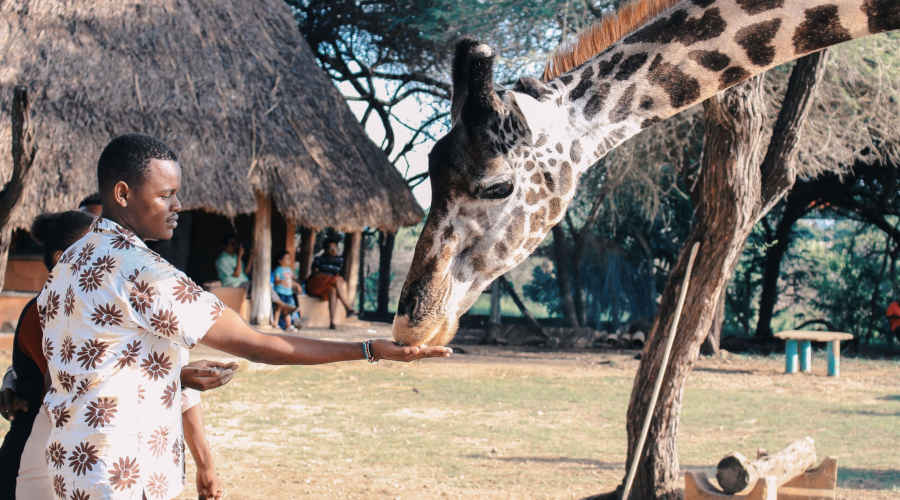
Learning Swahili will give you the upper hand if you want to get involved in the growing markets of East Africa.
Even so, if you are a businessperson searching for new markets and observing the dramatic increase of Chinese investment in Africa, a Swahili dictionary is the best book to pick up right now.
From a financial standpoint, Swahili holds immense value as a destination of business travel. East Africa is currently witnessing higher economic growth compared to elsewhere in Africa. While high-income economies see recessions swell and ebb due to the COVID-19 crisis, lower production costs cause Africa to be a prime environment for entrepreneurs and manufacturers seeking ways out.
Need to Translate African Languages?
Click the button below to tell us about your translation need and get a quote.
Get a Free Quote
How to Learn the Swahili Language
Duolingo attracts criticism for the lack of attention it gives towards some of its language programs, while only a few like French and Spanish surpass the rest in quality material available. No, Duolingo will not make you fluent in your target vernacular, but it’s a great and logical starting point while you’re still a novice.
Tuning your ears to a language is more pertinent than speaking it when just commencing your studies. BBC Swahili provides articles and radio programs, making it a favorite station among native speakers. In addition, you will keep up to date on news from the East African region.
BBC Swahili employs challenging Swahili, but its Voice of America equivalent goes even further in vocabulary and grammar. The latter is more suitable for an advanced Swahili student.
Literature will always hold the crown in disseminating and preserving language identity. Swahili literature rests upon poetry and storytelling, with the earliest sources dating back to the 18th century and were originally recorded in Arabic script.
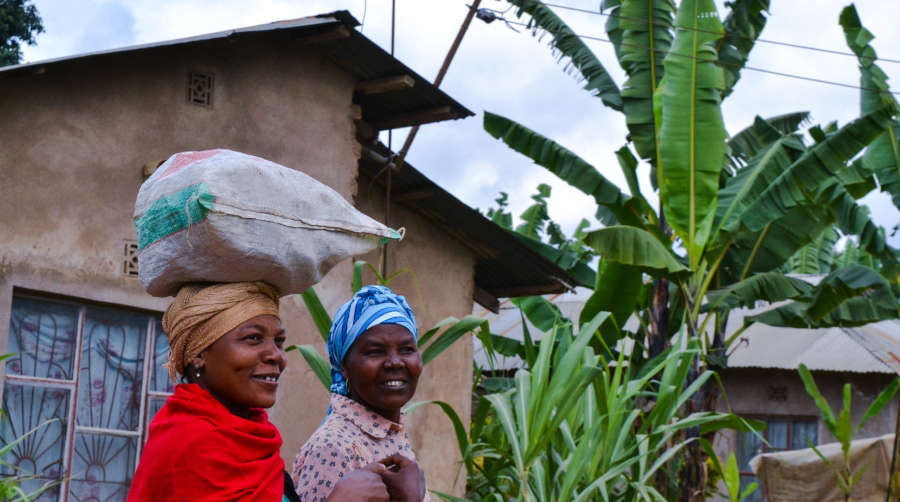
Learning resources abound for those who want to learn the Swahili language. Doing so will bring you closer to the people and culture of East Africa.
Nowadays, both historic and modern texts can be found on Amazon and other online marketplaces. A list is compiled here containing some dictionary suggestions to start with:
- Swahili Practical Dictionary, Nicholas Awde
- English – Swahili Dictionary, Institute of Kiswahili Research
- Modern Swahili Dictionary, Kasahorow
- Swahili Dictionary & Phrasebook, Nicholas Awde
On the more visual side, a television series, Siri ya Mtungi, portrays various characters and their adventures in the city landscape of Dar Es Salaam. English subtitles are available, giving you an enjoyable and enlightening experience.
Recap
Africa is a stunning and complex region of the globe, laden with a mind-boggling number of ethnicities, languages, and terrains, but Swahili is rapidly evolving into the continental common thread.

East Africa is home to fascinating cultures, buzzing markets, and breathtakingly beautiful natural scenery.
Its history, an amalgam of Bantu and Arabian contributions, is still developing, shaped by an increased sense of homogeneity across the continent. Foreigners will pass by smoothly spouting only English, but skill in Swahili integrates you closer to the culture and goings-on of East Africa, opening up many doors of opportunity. Just as East Asia exploded onto the global financial scene and, with Chinese, Japanese, and Korean attracting multitudes of learners on a daily basis, the same is projected to happen to East Africa.
Swahili can be acquired pretty quickly with a sufficient amount of dedication, with the Internet offering a never-failing helping hand. Hopefully, this article convinces you to dip your toes into the pond of African languages, one that is quite different from the usual Romance or Eastern European stock.
Althea Chokwe—Althea is an economics student at Iona College. She writes on a regular basis, interested in issues relating to society, global culture, the economy, and more. Althea also enjoys teaching herself languages and is aiming to become a polyglot. You can connect with her on LinkedIn here.
Like the Article?
Click here to share on Twitter>>
Tweet
Click here to follow IVANNOVATION on Twitter and be first to learn about our new content>> Follow @ivannovation



